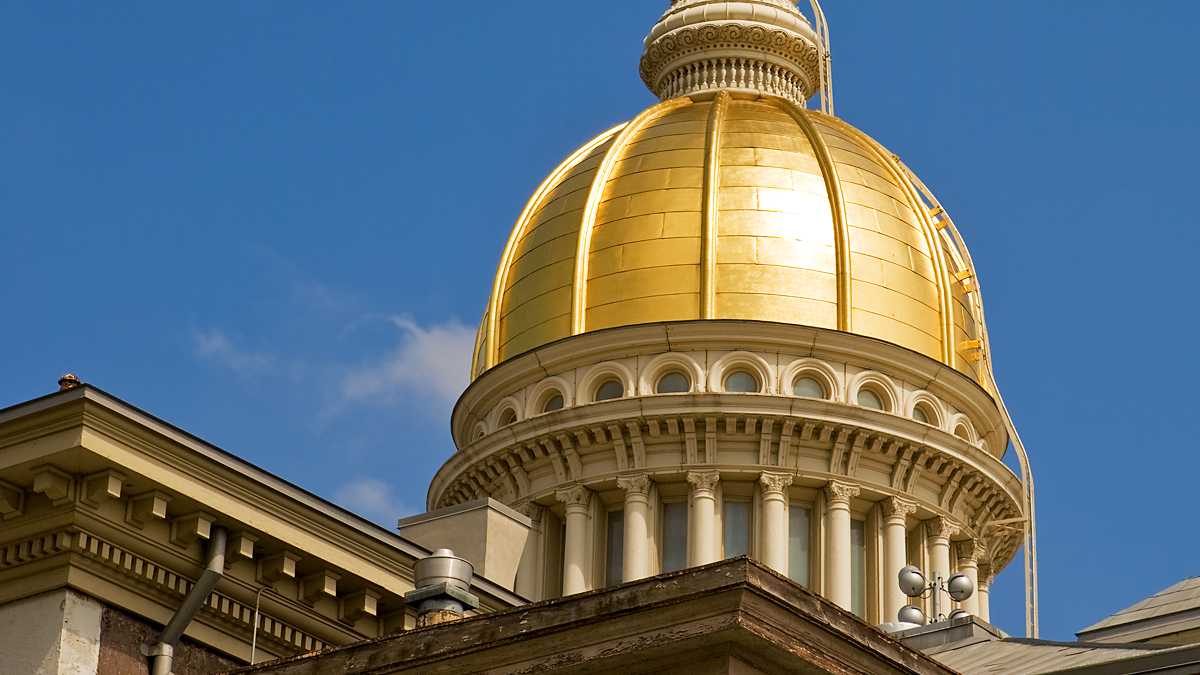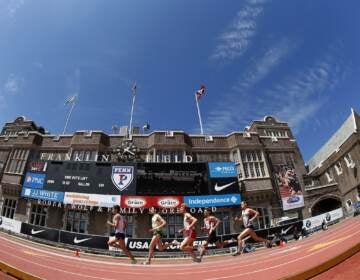Commentary: Why NJ Democrats think they can win the 2017 governor’s race

Democrats think 2017 will be there year to win the governor's seat.
With three probables and two maybes warily circling one another while eyeing the 2017 Democratic New Jersey gubernatorial nomination, Republicans have largely been left out of the speculation about who will be selected to succeed Gov. Chris Christie.
The growing sense that the governor’s office is the Democrats’ to lose has induced three legislators — Senate President Steve Sweeney (Gloucester), Sen. Ray Lesniak (Union ), and Assemblyman John Wisniewski (Middlesex); an urban mayor, Steve Fulop of Jersey City; and a millionaire, former Goldman Sachs executive Philip Murphy — to move with varying degrees of seriousness toward securing the Democratic nomination.
Sweeney, because of the position he holds; Fulop, because of his strong Hudson County base; and Murphy, because he’s reportedly willing to finance much of his campaign on his own, are the frontrunners, while Lesniak and Wisniewski are outside chances.
The absence of similar movement by Republicans suggests that many in the party believe a gubernatorial run next year is a kamikaze mission, that the party has been weakened to a point where mounting a credible, aggressive, and ultimately successful campaign is impossible.
Like vice presidents who nearly always automatically lead the roster of potential presidential candidates as their terms wind down, speculation has settled on Lt. Gov. Kim Guadagno as the potential nominee who possesses some level of name recognition and executive experience to lead the ticket.
Guadagno has stood resolutely by Christie for the six-plus years they’ve held office, serving as the chief executive during Christie’s protracted absences from the state in pursuit of the Republican presidential nomination.
She’s represented the administration ably, carrying its message to business groups and local governments while concentrating on economic growth and revitalization efforts. She comes across as knowledgeable, familiar with the issues, willing to listen to others, and her appearances have met with generally favorable reviews.
Once past Guadagno, the Republican field is thin, indeed.
Senate Minority Leader Tom Kean Jr., who certainly possesses name recognition, and Assembly Minority Leader Jon Bramnick, who does not, are most often mentioned in the infrequent discussions about possible candidates, but neither has evinced any great interest at this point.
The pessimism among Republicans about the future can be traced in considerable measure to Christie’s complete dominance of the political environment since assuming office.
His presence has been so overwhelming — suffocating, his critics grumble — that he transcended and overshadowed party identification. The state party ceased to function as a traditional statewide organization and morphed instead into a personality-driven Christie Party.
The Republican brand became the Christie brand, its legitimacy rising or falling based on the governor’s performance and popularity.
And, ever since his entrance into and departure from the campaign for the Republican presidential nomination after eight months, Christie has experienced a steep decline in public support as well as a loss of confidence in his ability to deal effectively with the state’s problems.
Any potential Republican gubernatorial nominee — but Guadagno in particular — will be perceived as the candidate of the Christie Party, seeking to succeed him and continue the programs and policies of his administration.
Guadagno, of course, has been an integral party of the administration, serving under the governor’s office direction, defending it when necessary, and promoting its agenda. She is inextricably tied to it and, as a candidate, would face the challenging task of creating some distance between her and the governor and establishing her own identification, personality, and independence qualified to hold the state’s highest office.
At the same time, her prospects would be considerably enhanced should Christie regain the reputation he enjoyed in his first term in particular as a strong leader unafraid of taking on political or special-interest opponents on behalf of the taxpayers.
His involvement in reaching solutions to replenishing the Transportation Trust Fund, reforming the public pension and health benefits system to place it on a more stable fiscal footing, and rescuing Atlantic City from the brink of a disastrous bankruptcy would likely produce an uptick in his poll standing and, at the same time, reflect well on Guadagno.
His accomplishments, his dealing with a hostile Legislature, and his return to pre-presidential campaign approval ratings will help to turn part of the spotlight at least on his lieutenant governor. She will be portrayed as a vital part of a team that guided the state through difficult economic times and succeeded in reducing unemployment, sparking job creation, and resisting tax increases.
She is better positioned to benefit from such a favorable turn of events than legislators, for instance, who can claim they supported the governor but who cannot — as she can — take some credit for helping develop the agenda and seeing it through to fruition. The public perception of success always goes to those readily identifiable as at the forefront — Christie and Guadagno in this case.
History is on her side somewhat as well. While several have served in the Legislature at some point in their public careers, no one since the Robert Meyner administration in 1953 has gone from either the Assembly or Senate directly to the governor’s office.
History has another side, though, one not quite so favorable. In selecting governors, New Jersey voters have displayed a “give-the-other-side-a-chance” streak, following one administration after another with the opposing party since 1969.
(The one anomaly occurred in 2005 when Democrat Jon Corzine succeeded fellow Democrat Jim McGreevey, although McGreevey had resigned from office a year and a half earlier, leaving it in the hands of an acting governor.)
In all likelihood, the potential Democratic candidates will continue to attract the most attention as they jockey for inside position and play the media for all its worth.
While Democrats spend time and energy sniping at one another, Guadagno will benefit from a lower profile and establishing an image as quietly working on placing effective governance above partisan advantage.
Who knows? Perhaps she’ll be the one to eventually snap the “give-the-other-side-a-chance” streak.
Carl Golden served as press secretary for Republican Gov. Thomas Kean for eight years and as communications director for Republican Gov. Christie Whitman for three years. He is currently a senior contributing analyst with the William J. Hughes Center for Public Policy at Stockton University.
____________________________________________________
NJ Spotlight, an independent online news service on issues critical to New Jersey, makes its in-depth reporting available to NewsWorks.
WHYY is your source for fact-based, in-depth journalism and information. As a nonprofit organization, we rely on financial support from readers like you. Please give today.




